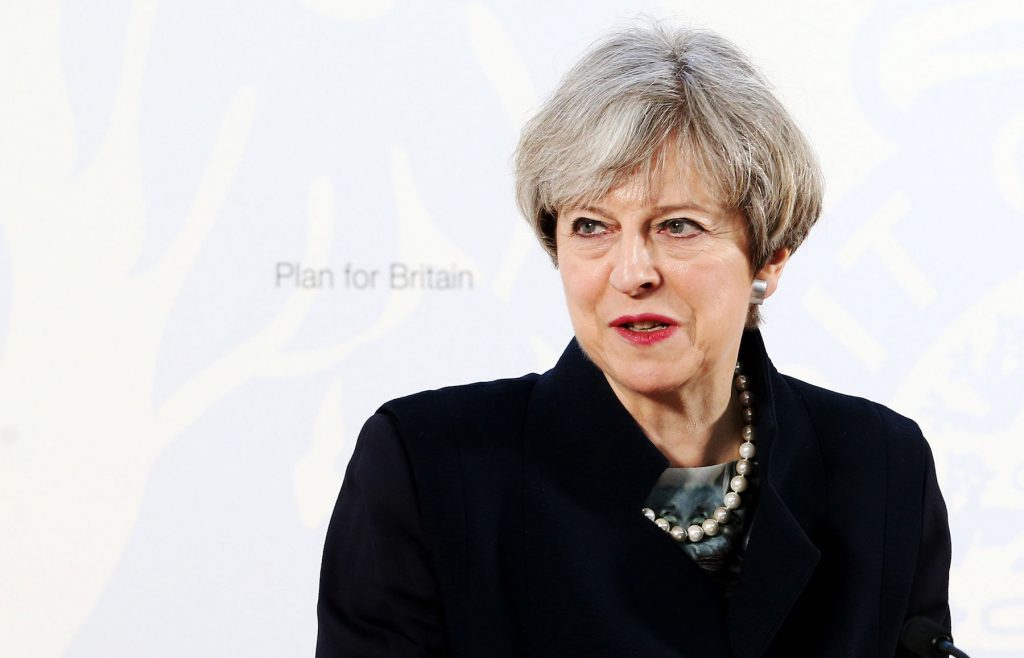
It’s Article 50 day (baby?)
Today’s the big day. After months of speculation, lots and lots of arguments and er... not that much else actually, the UK will formally begin the process of leaving the EU.
What that actually means? We're still not too sure, but here’s what we know so far:
Pull the trigger? Press the button? Just write a letter
Article 50 is just a clause in the contract that the EU countries have. In order to notify the EU the UK is planning on leaving, the UK’s main representative to the EU Sir Tim Barrow, will actually hand a physical letter to the European Council President, Donald Tusk – in case he didn’t already know. Something like this we'd assume?
Dear Donald,
This might come as a surprise to you, but we’ve been thinking about this for some time. It's not really working, I think we’re gonna leave. It’s not EU, it’s me – oh no wait, what am I saying? It is you!
Love, The UK x
The road to Brexit

Thought this was it? Sorry, not even close! This is just the start – the referendum in June was just the decision for the start. But here’s what we know about what will happen next:
29 March – The UK delivers its letter to the EU. Donald Tusk is expected to make a short statement to acknowledge he received it
30 March – Donald Tusk sends a draft copy of the EU's ‘negotiating guidelines’ to the remaining 27 member states. This is supposed to offer a sense of what the EU's stance will be, and will act as some kind of response to the British government’s letter
29 April – The ‘negotiating guidelines’ are formally adopted by the EU27 (the catchy name being given to the remaining member states) at a special summit in Brussels.
Somewhere between 29 April and May – A summary of the EU’s negotiating stance will be issued by the European Commission, which should give a bit more indication of how hard it will be for the UK to get the deal it wants.
May This negotiating stance will then need to be adopted by a meeting of EU27 ministers in May (see where we're going with this), before negotiations with the UK can finally begin.
Deal or No Deal (AKA the long bit)
The negotiations can take anything up to two years. That’s a lot of talking. But there's a lot to talk about.
In January, the UK Prime Minister Theresa May said in a speech that “no deal for Britain is better than a bad deal” over Brexit.
This led people to think that she's prepared for the UK to break all ties with the EU without a deal (because that’s what she said) – in other words, without any assurance that UK companies would be able to continue to trade in the same way they'd done in the past. That's what's being called a ‘hard Brexit’.
She also said that if the EU tried to punish the UK at the negotiating table it would respond by cutting taxes for businesses so they'd be attracted to the UK and away from the EU – fighting talk, basically.
Since then, it looks like things have calmed down a bit – well, according to some reports anyway. The Guardian newspaper is saying that EU diplomats – representatives from EU countries in the UK – think the prime minister is rowing back on her hard line.
But (maybe as a sign of things to come) it was also reported this week that there is already likely to be disagreement about what happens during the negotiation period.
Specifically, the rights of people moving to the UK over the next two years. Immigration has been front and center of this debate the whole time. A big reason for the UK population voting to leave was because they wanted the country to be able to control what they saw as excessive immigration, but for the EU, membership of the pretty favorable trade deals is dependent on people being able to work wherever they want in the EU.
The leader of one of the main groups in the EU Parliament – the socialist bloc – said: “It cannot be right that someone signing a work contract in the UK on Tuesday has more rights than someone signing a contract on Thursday.”
The UK government is reportedly worried that letting the two-year negotiations end date be the cut off for freedom of movement will result in a rush of people trying to enter the UK between now and then.
Basically, none of this is going to be easy. If all the squabbling gets too much, the UK can back out. But the other member states will be able to decide if (or how) that happens – they’re not keen on the UK reversing its decision just because it can’t get a good deal.

And there's work to do at home
The government has to strike a deal with the EU at the same time as not angering people in the UK – pretty hard considering the country was pretty evenly split over Brexit (52%-48%). And its main political opposition, the Labour Party, has said it won’t support any deal unless it passes the following six tests:
- Fair migration system for UK business and communities
- Retaining strong, collaborative relationship with EU
- Protecting national security and tackling cross-border crime
- Delivering for all nations and regions of the UK
- Protecting workers' rights and employment protections
- Ensuring same benefits currently enjoyed within single market
Let’s hope Theresa May’s got her game face ready.



